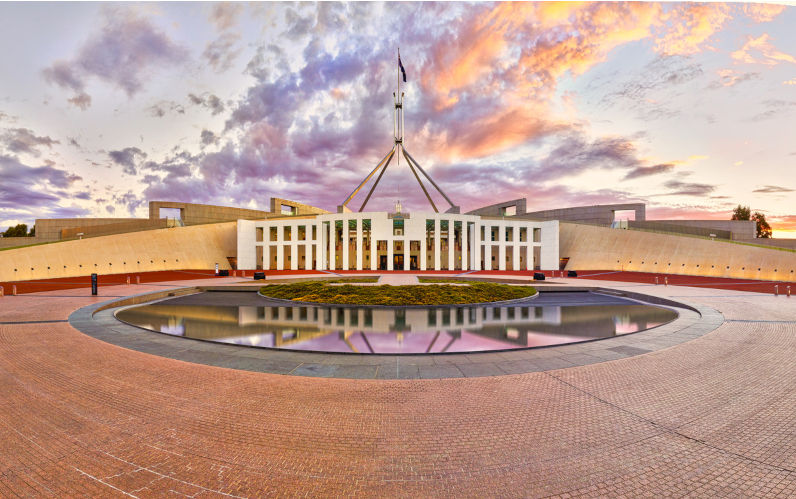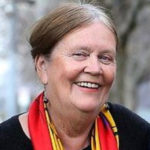A majority of Australians want a ceasefire in Gaza, but the Australian Parliament seems more preoccupied with political brinkmanship than recognition of this tragedy.
The first parliamentary debate occurred immediately after the Hamas attack on Israel when this atrocity was immediately condemned recognising the human impact of this act of terrorism. Yet for the last eight months Palestinians have been subjected to daily acts of terrorism, but there has been no comparable parliamentary debate about Israel’s military retaliation and the horrendous loss of life and destruction. How does the Australian Parliament justify such an obscene double standard? How can so many parliamentarians from the major political parties meekly accept the ruling of their leaders to avoid debate about a humanitarian catastrophe?
Why is the Australian Parliament unable to consider the unprecedented issues that have preoccupied the United Nations, the International Criminal Court, The International Court of Justice and countries around the world? Why do a majority of Australian parliamentarians turn away, unable to engage in serious analysis of this disaster which reflects the failure of our international system to control powerful states and interests?
Other nations’ elected representatives have been much more vocal. As early as the 20 November 2023, the Scottish Parliament was calling for a cease-fire. On the 21 February 2024, the UK Parliament debated the need for a ceasefire in Gaza as did the New Zealand Parliament on 26 March. On the 22 February, the European Parliament debated the case of genocide brought against Israel by the South African Government. On the 19 March the Canadian Parliament debated the need for a two-state solution.
The Prime Minister of the Republic of Ireland, Simon Harris was one of the first European leaders to condemn Israel. Together with Northern Ireland many Irish people say their experience of British occupation gives them empathy and shared history with the Palestinians.
Spain, Norway, and the Republic of Ireland have each recently announced recognition of the State of Palestine, joining with 144 other nations that have already done so.
In our region the Indonesian Foreign Minister, Retno Marsudi made a statement to the United Nations Security Council on January 26th in which she called for a ceasefire, humanitarian support and an end to the supply of arms to Israel. She also indicated her government would be addressing the International Court of Justice supporting the South African case against Israel.
On January 11, 2024, it was recorded “The Malaysian Parliament earnestly supports the Palestinian struggle, and the government will use all available means to strengthen the voice and protect their rights “
Malaysia’s Prime Minister Anwar Ibrahim has become a prominent Asian voice opposing Israel’s war on Gaza indicating his position as a principled rebuke of “colonisation”. His Foreign Minister, Mohammed Hasan made clear the government’s position when he said “Israel is under an obligation to offer full reparation “
In June, Japanese lawmakers in the lower house, The Diet, called for a ceasefire and release of hostage.
In the United States there is anxiety about the impact of the Israel/ Gaza conflict on the presidential election with Democrat Congressman Ro Khanna warning that “Joe Biden is running out of time to win over young voters” who oppose the military support given to Israel and are critical of the failure of the United States to enforce a ceasefire.
Around the globe many people and especially the young, see through the hypocrisy of elected lawmakers who are quick to condemn some human rights violations while ignoring those nations which see themselves as above international law.
Over these months the Australian Parliament has remained largely silent, unable to allocate any time to consider the disturbing events affecting many Australians with family and friends in the disaster zone. There has been no condolence motion for the loss of 37,000 Palestinian lives and no statement of condemnation for the wanton destruction of their communities. There has been no detailed discussion about Australian defence policy and how the nation should respond to allegations of complicity in genocide. And of course, no consideration of a more independent foreign policy which reflects our place in Southeast Asia. Instead, members of both the Senate and the House of Representatives have indulged in political point scoring about slogans and protest in Australia with speeches so local in content they reflect neither compassionate nor constructive comment.
Perhaps the Australian Parliament is delaying serious debate until it is time to offer major rebuilding and humanitarian rehabilitation to a traumatised population. Is an Australian Taskforce being prepared to send medical, engineering and other essential expertise to Gaza? Will Australia’s financial commitment for long term humanitarian assistance be fully detailed to both the House of Representatives and the Senate. Will Australia’s diplomatic efforts include a cessation of all military exports to Israel and a demand that Israel contribute major resources to rebuild Gaza and accept the two-state solution?
Australian parliamentarians are responsible for the wellbeing of Australia’s multicultural society but in the last eight months the majority have failed to understand the reaction of those citizens who have experienced colonisation, occupation and war. These Australians are more likely to identify with oppressed people, so they expect their parliamentarians to articulate commitment to international humanitarian law. And of course, as we know many Australians are opposed to militarism as a means to resolve conflict. It is important to recognise those few political representatives who have tried to initiate difficult debate about how Australia should respond when a hitherto trusted ally ignores international law to engage in ethnic cleansing? Australians want to see their representatives and senators engage in informed consideration of complex issues that require sensitivity and courage. Time is running out for many parliamentarians to fulfil their obligations and Australians are watching and waiting for greater responsibility .
Margaret Reynolds has a long commitment to the peace movement dating back to the Anti-Vietnam Moratorium to current advocacy against militarism as National President of Women’s International League for Peace and Freedom.(Australia )
She was a Labor Senator for Queensland 1983-1999 and a member of Bob Hawke’s Ministry 1987-1990. She taught Human Rights and International Relations at University of Queensland 1999-2004 and has worked with a number of international non-government organisations.

